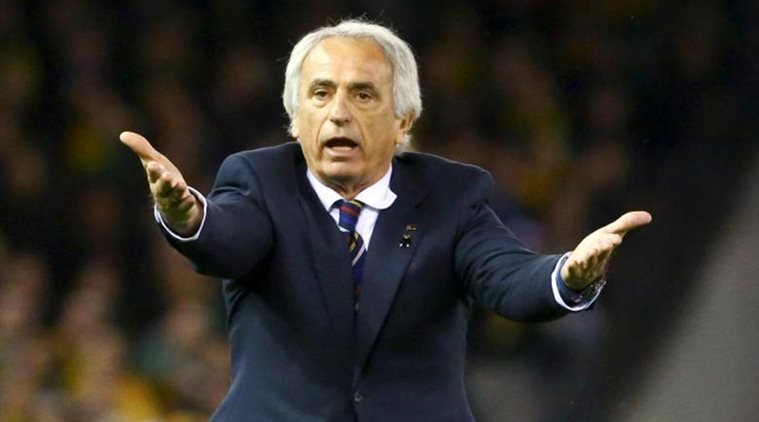World Cup: Japan Fires Coach


Japan appointed veteran Akira Nishino as its new national football manager on Monday, taking an “emergency measure” after the strategic sack of Vahid Halilhodzic only two months before the World Cup.
The 63-year-old Nishino boast of impressive records of domestic silverware and masterminded one of Japanese football’s proudest moments defeating a Brazil side containing Ronaldo and Roberto Carlos 1-0 at the 1996 Atlanta Olympics.
Nishino will have only 70 days with the Blue Samurai before their first gameagainst Colombia in a tough World Cup pool that also includes Poland and Senegal.
“We thought the new director should be appointed from inside, given we have just two months left before the World Cup,” Japan Football Association President Kozo Tashima told reporters.
“We have asked Nishino to take this position as an emergency measure.”
A former international midfielder who won 12 caps for his country, Nishino is best known for his stint at the helm of Gamba Osaka, which he steered to the team’s first Asian Club Championship in 2008.
This earned them the biggest match in their history, a World Club Cup semi-final clash with a powerful Manchester United side featuring Cristiano Ronaldo, Ryan Giggs and Wayne Rooney, which they lost in a 5-3 thriller.
Despite the famous win over Brazil in the 1996 Atlanta Olympics, Nishino came under fire for being overly defensive. But in 2012 he wrote a newspaper column on “the thrills of attacking football”, setting out an offensive style of play.
Tashima said the “basics will remain the same” under the new manager, adding that a fast, attacking style was “much needed.”
Communication ‘weakened’
The writing was on the wall for Halilhodzic after a series of disappointing results, including a loss to Ukraine and a snatched draw with Mali from the last kick of the game.
The straight-talking Halilhodzic was also reported to have ruffled feathers in the dressing room with his no-nonsense approach.
Tashima said the reason for the sacking was that “communication and trust with players have become weakened”.
He said he had given the news over the weekend to Halilhodzic, who had reacted with a mixture of confusion and anger.
“I told him that we have reached this decision so that Japan would have more chance of winning,” said Tashima.
Franco-Bosnian Halilhodzic, who recovered from being wounded in 1992 during the Bosnian war, insisted he was no “dictator” — but acknowledged his frank approach was capable of “wounding” some people in Japan.
In 2016, as Japan struggled to qualify for the World Cup, he told AFP he felt his players were too respectful.
“Sometimes I’d really like them to be more aggressive, more street-smart, more vicious,” said the former Nantes and Paris Saint-Germain striker.
He once reportedly banned his players from smiling, and he found himself in trouble with authorities on two separate occasions after traffic accidents in 2015 and 2017.
‘No progress, no hope’ –
“No progress, no hope, lots of worries over the World Cup,” blared a headline in the Sports Nippon last month, raising the prospect that Japan might lose all its group games in June.
The Nikkan Sports daily said Monday “the association made the decision as it has a growing sense of crisis over the team’s performance, which has shown no sign of improvement with fewer than 70 days until the World Cup”.
The tournament in Russia will be the sixth successive World Cup appearance by the Blue Samurai, who made it to the last 16 in 2002 when Japan co-hosted the tournament with South Korea and again in 2010.
However, it was not a smooth path through to the finals.
Japan lost 2-1 at home to the United Arab Emirates in the first qualifying match and rounded off an unconvincing campaign with a 1-0 loss to Saudi Arabia.
It is not the first time Halilhodzic has been jettisoned just before a major tournament.
He missed out on leading Ivory Coast during the tournament in 2010 when he was fired as national coach just months before the finals following the team’s disappointing performance in the African Cup of Nations.
Before moving to Japan, Halilhodzic took Algeria to the last 16 at the 2014 World Cup in Brazil.








